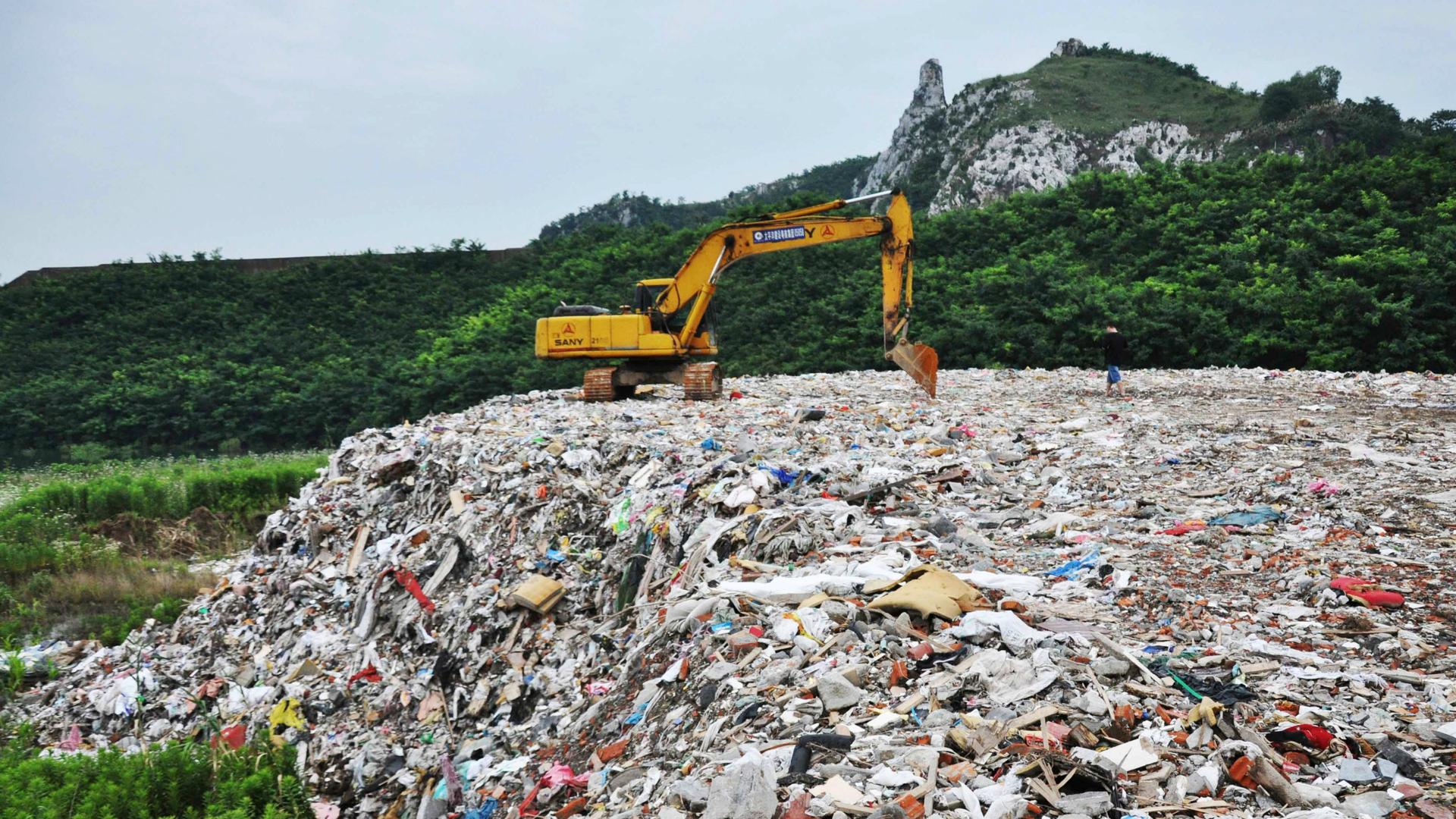China announces a new ban on single-use plastics
A garbage dump site is seen near Taihu Lake, Suzhou, Jiangsu province, China, July 4, 2016. China’s largest landfill is now full, 25 years ahead of schedule and plastic pollution has become a severe problem throughout the country.
China produces the most single-use plastic of any country in the world and the largest landfill in China is full — 25 years ahead of schedule. Plastic waste is finding its way into China’s waterways, to the outrage of many Chinese citizens.
The Chinese government seems to be taking the problem seriously.
In 2017, it banned the import of most plastics for recycling and now the country has announced a ban on single-use plastics that starts phasing in this year and will broadly forbid the use of consumer single-use plastics by 2025.
China issued its first plastic ban years ago. At the time, the law banned the use of ultra-thin plastic bags and required department stores to charge for the use of plastic bags.
“There was a certain level of success, but on the other hand, socio-economic development in China and the increasingly affluent society started consuming far more plastic,” said Ma Jun, the director and founder of the Institute of Public and Environmental Affairs, a non-governmental organization in Beijing. “Especially in recent years, e-commerce and online food delivery started generating a new round of plastic packaging.”
Related: Why stop at plastic bags and straws? The case for a global treaty banning most single-use plastics
The new plastic ban policy is a far more comprehensive response to the ongoing plastic crisis, Jun said.
In China, and across the world, so-called “white pollution” caused by plastic bags, packaging, styrofoam and other products has been contaminating soil and waterways. Much of this waste gets dumped along riverbanks and ends up washed away into the water. A large percentage of this waste makes its way to coastal seas and the ocean, Jun said.
“We all know that this pollution can lead to an impact on the health of the ecosystem and on the animals and biodiversity and also, eventually, on public health, as well,” Jun said. “Now, I think we understand that there’s a cost to be paid. There’s a real big consequence.”
Related: America’s grungy ‘recycled’ plastic is creating wastelands in Asia
Jun hopes the new plastic policy can be combined with the Zero-waste Cities Program in China. “Every year we generate over 200 million tons of all this waste food in the plastic, and we simply don’t have enough land to dump them,” he said. “The landfills are being used up at a shocking speed.”
China’s initial plastic ban had somewhat limited success, Jun said, because enforcement was not strong on the local level, at farmer’s markets, for example. The big challenge now, he notes, is e-commerce, which is now reaching hundreds of millions of consumers. This time, he says, the priority should be holding the major consumer product brands accountable for their contribution to the problem.
“Of course, it’s not only about enforcement and imposing penalty fines on those who violate the policy,” Jun adds. “It’s also about how to better tap into the market approach to try to collaborate with a business to try to motivate them for innovative solutions.”
Related: Inside the long war to protect plastic
The Chinese government is trying to promote the development of biodegradable plastic bags and containers, but this is an imperfect solution because these bags and containers can be composted only under certain conditions.
Switching to refillable products offers another solution — and it’s something China has done in the past.
“When I was young, I grew up using that type of container,” Jun said. “We had not just the milk delivered in glass bottles to be returned and refilled, but also soy source and vinegar came in glass bottles that we needed to return and refill. It used to be the practice, in those old times in China.”
Global collaboration on combating plastic waste is extremely important, Jun said, because plastic waste, like climate change, is a threat to the global, common good.
“I hope that globally we can come up with more innovative solutions by collaborating [and] having the right policy to work with major businesses. I see a big potential there,” Jun said.
This article is based on an interview by Jenni Doering that aired on Living on Earth from PRX.
